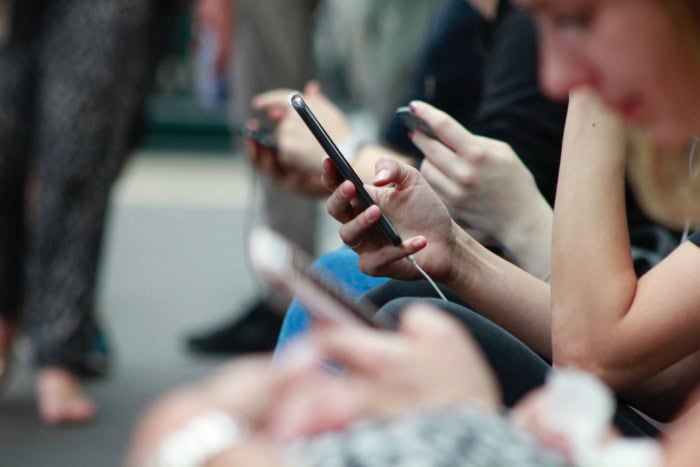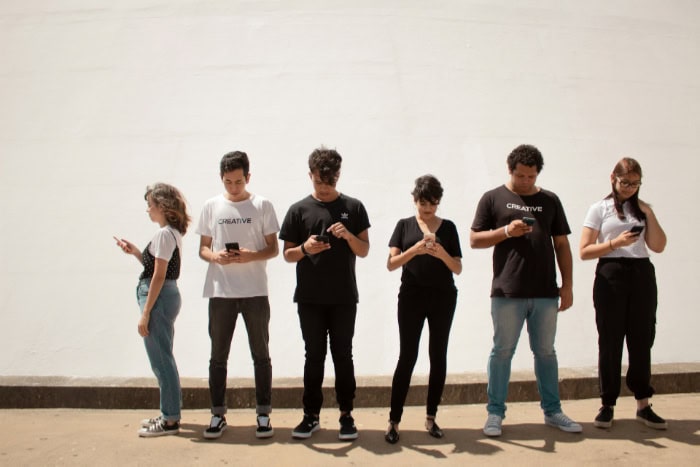The Impact of the Internet on Our Lives: Benefits and Risks

Our lives today are intertwined with a technology that has transformed the way we communicate, learn, work, and even relax. The internet, once a novel invention, now powers nearly every aspect of modern living, from fostering global connections to providing endless streams of information.
It has opened doors to opportunities unimaginable decades ago, yet it also brings challenges that demand attention—including concerns around privacy, security, and mental well-being. As we embrace this digital era, it's worth reflecting on how the internet has not only shaped our personal lives but also redefined entire societies.
Transforming Communication and Social Connections
The internet has dramatically shifted how people connect with one another. From bridging geographical gaps to redefining the way relationships are built and maintained, it has become a central force in communication.
The tools and platforms we now rely on have not only made interaction faster but also reshaped the essence of social exchanges. While these advancements have unlocked new possibilities, they also raise questions about the quality and authenticity of modern connections.
Revolutionizing Communication
The advent of technologies such as instant messaging, video calls, and social media has allowed conversations to transcend time zones and borders. Messaging applications let people exchange thoughts in real-time, while video calls offer the ability to see loved ones across cities or continents, making distance feel irrelevant.
Social media platforms amplify this connectivity by serving as virtual forums where individuals interact, share, and engage with each other’s lives on a daily basis. Beyond personal relationships, these tools have transformed the professional realm.
Digital collaboration platforms, such as team chat applications and project management software, allow for seamless coordination, even among groups spread across the globe. The speed, accessibility, and efficiency of communication today would have been unimaginable in the pre-internet era.
Shifts in Social Interactions
While the internet has powered global connectivity, it has also reshaped how people approach relationships. Face-to-face interactions, once the cornerstone of human connection, now share the stage with online exchanges.
Many people enjoy the convenience of staying close through virtual means, but this shift has its complexities. In some cases, the heavy reliance on screen-based communication can make face-to-face encounters feel less frequent or less natural.
At the same time, the internet provides opportunities to connect with individuals from different backgrounds, interests, and cultures. Online communities and forums foster a sense of belonging for those who may struggle to find it locally.
However, there can also be risks of social isolation for those who replace meaningful in-person interactions with digital ones. Striking the right balance between the online and offline worlds is important to ensure relationships remain meaningful and fulfilling.
Enhancing Education and Learning Opportunities

The internet has reshaped the way people learn and access knowledge, creating possibilities that were unimaginable just a few decades ago. It has broken barriers that previously limited education, making learning more accessible, flexible, and tailored.
From remote regions to bustling cities, individuals now have an unprecedented ability to seek knowledge, develop new skills, and expand their horizons. Yet, these advancements come with challenges that highlight the need for thoughtful use of digital tools in education.
Access to Information
The internet is often regarded as a treasure trove of knowledge, offering endless resources to those seeking information. E-books, research databases, tutorials, and online encyclopedias provide learners with instant access to a wide variety of materials.
Unlike traditional libraries or physical textbooks, these resources are available around the clock, allowing individuals to learn at their own pace.
This accessibility has been particularly beneficial in bridging educational gaps in remote or underserved areas. Where schools or libraries may be limited, the internet serves as a virtual classroom, granting students the ability to engage with quality materials and expand their education.
Whether it’s reading up on science concepts or mastering a new language, the internet has opened doors for a more inclusive and flexible approach to acquiring knowledge.
Online Learning Platforms
Online platforms have transformed how learning is delivered, catering to diverse needs and preferences. Massive Open Online Courses (MOOCs) and other e-learning tools have made it possible for students to learn from top educators and institutions, no matter where they live.
These platforms often offer self-paced options, allowing individuals to tailor their education to fit within their schedules.
Virtual classrooms have also become a popular option, where live lessons, interactive discussions, and multimedia presentations enhance the learning experience. Additionally, advancements in artificial intelligence have enabled personalized learning tools.
These tools can adapt to an individual’s progress, offering targeted resources and feedback to help them succeed in areas where they struggle. Such innovations give learners a sense of control over their education, making it more engaging and effective.
Challenges in Digital Education
Despite these advancements, digital education is not without its hurdles. One of the most significant challenges is the digital divide, where access to reliable internet, devices, or digital literacy remains unequal across different demographics.
For students in economically disadvantaged communities, the lack of these resources often creates a significant barrier to benefiting from online learning opportunities.
Another concern lies in the over-reliance on technology in education. While online tools can enhance learning, they cannot fully replace the guidance and interaction provided by in-person educators or traditional classrooms.
Excessive screen time and the absence of in-person collaboration can also affect motivation and social learning. Balancing the strengths of digital education with its limitations is crucial to ensuring it remains an empowering tool rather than a substitute for meaningful, well-rounded learning experiences.
Revolutionizing Work and Economic Opportunities

The internet has fundamentally changed the way people work and the structure of economies worldwide. From enabling flexible work arrangements to transforming how businesses operate, its influence is evident in every industry.
While these changes have opened up opportunities for creativity and innovation, they have also led to shifts in employment dynamics and raised concerns about economic inequalities.
Remote Work and Freelancing
Advancements in technology have given rise to remote work and freelancing as viable and popular options for millions of professionals. Telecommuting allows employees to work from the comfort of their homes, collaborating with colleagues through video conferencing, instant messaging, and cloud-based tools.
This flexibility not only improves work-life balance but also enables people to pursue careers without needing to relocate.
Freelancing platforms have also created new pathways for earning a living. Individuals can provide specialized services, such as graphic design, writing, programming, or consulting, to clients from virtually any country.
These platforms allow people to access global job markets and cater to demand beyond their local economies. However, reliance on gig work can present challenges, such as income instability and a lack of traditional job benefits like healthcare or paid leave.
Nevertheless, the ability to work independently and connect with clients worldwide has transformed how many approach their careers.
E-Commerce and Digital Businesses
The internet has revolutionized commerce, allowing businesses to thrive in a digital environment. Online shopping has grown exponentially, giving consumers access to products and services with the click of a button.
Digital marketing has also become an essential tool for businesses, enabling them to target audiences more effectively than traditional advertising methods. Entrepreneurs, too, have flourished, as setting up online stores or offering services digitally has become more accessible and less costly than opening physical locations.
While digital businesses have created immense opportunities, they have also posed challenges for traditional brick-and-mortar stores. Many physical retailers have struggled to compete with the convenience, speed, and range of online shopping options.
This shift has forced businesses to adapt by improving customer experiences and offering hybrid models that combine physical and digital services. The rise of e-commerce is a testament to how the internet has redefined the concept of running a business.
Economic Disparities
Despite the immense opportunities the internet has created, advancements in technology have also contributed to economic disparities. Automation, powered by algorithms and artificial intelligence, has replaced certain jobs that were once performed by humans.
This shift has disproportionately impacted industries that rely on repetitive or manual tasks, leaving some workers in search of new skills to remain competitive in the job market.
Additionally, while digital platforms provide global opportunities, not everyone can access them equally. Individuals in regions with limited internet connectivity or inadequate technical training are often left behind.
These gaps highlight the need for greater efforts to ensure equitable access to technology, so more individuals can participate meaningfully in the internet-driven economy.
Challenges to Privacy, Security, and Well-being

As the internet integrates deeper into our daily lives, it brings both remarkable benefits and pressing concerns. Among the most significant challenges are threats to personal privacy, increasing cybersecurity risks, and its impact on mental health.
From data breaches to feelings of social pressure, these challenges highlight the complex relationship between technology and human well-being.
Privacy Concerns
The amount of personal information shared online today is unprecedented. Social media accounts, online shopping profiles, and apps all collect and store vast amounts of user data.
This has led to growing concerns about data breaches, where sensitive information such as financial details or personal identifiers can be stolen or exposed. Identity theft has become a prominent issue, with many falling victim to malicious actors who exploit this information for fraud or other crimes.
Beyond these risks, there are also ethical concerns surrounding how companies collect, use, and monetize user data. Many online platforms track users’ behavior to target advertisements or personalize services, often without full transparency about how this data is handled.
This level of monitoring raises concerns about surveillance and how much control individuals truly have over their personal information. The balance between convenience and privacy is a challenge that continues to grow as technology advances.
Cybersecurity Threats
The internet has also become a battleground for malicious activities such as hacking, phishing scams, and ransomware attacks. Cybercriminals target individuals and organizations alike, seeking to exploit vulnerabilities in online systems.
Phishing scams, often disguised as legitimate emails or messages, lure users into revealing confidential information such as passwords or credit card details.
Beyond personal security, ransomware attacks have become a growing concern for businesses and institutions. These malicious programs lock users out of their systems and demand payment to restore access.
As these threats evolve, they highlight the importance of cybersecurity measures to protect both personal and professional digital spaces. Despite these efforts, staying ahead of increasingly sophisticated attacks remains a significant challenge.
Mental Health Impacts
The widespread use of the internet has also had a profound impact on mental well-being. For some, constant access to social media can create feelings of pressure to conform to unrealistic standards of success, beauty, or lifestyle.
Endless streams of curated content often lead to comparisons that impact self-esteem and overall happiness.
Internet addiction has also become a notable concern. The convenience of online platforms can make it difficult to disconnect, leading to excessive screen time that takes away from other important aspects of life, such as physical activity or meaningful social interactions.
Adding to this is the issue of information overload. With so much content available at all times, individuals can feel overwhelmed, which may lead to stress, anxiety, or difficulty focusing.
Societal Changes and Ethical Considerations

The internet has profoundly influenced societies in ways that extend beyond individual use. It has reshaped cultural norms, exposed inequalities, and raised questions about ethical responsibilities in the digital age.
While the internet connects and empowers, it also challenges traditional practices and introduces dilemmas that require thoughtful consideration.
Cultural Shifts
The internet has served as a powerful force in spreading culture across borders. Through shared media, social platforms, and global entertainment, people from different parts of the world are exposed to new ideas, traditions, and lifestyles.
This cultural exchange fosters shared experiences and a sense of interconnectedness that transcends geography.
However, this globalization of culture comes at a cost. The widespread access to dominant global content often overshadows local traditions, languages, and practices.
Small, unique cultures may face challenges in preserving their identities as they compete with the influences of mainstream global trends. Cultural homogenization, where traditional practices fade in favor of more universally recognized lifestyles, is a growing concern.
This shift highlights the challenge of balancing the benefits of global cultural exchange with the need to protect and celebrate regional diversity.
Digital Inequality
While the internet has become a defining feature of modern life, access to it remains uneven. The digital divide separates those who can fully participate in the online world from those who cannot, often due to financial barriers, limited infrastructure, or a lack of digital literacy.
This gap means that millions are left without the tools to access online education, job opportunities, or information that could improve their lives.
Efforts are being made to address this issue, often through infrastructure development, public policy initiatives, and outreach programs aimed at closing the divide. Expanding connectivity to underserved areas and equipping individuals with the skills necessary to navigate digital spaces are vital steps.
Still, achieving comprehensive access remains an ongoing challenge that requires global cooperation.
Ethical Dilemmas
The internet offers a platform for free expression, enabling individuals to share their thoughts and opinions more broadly than ever before. However, this freedom also brings with it the challenge of managing harmful content and misinformation.
Balancing the protection of free speech with the responsibility to combat false or damaging material is a complex issue.
Platforms face the difficulty of moderating content in a way that respects diverse viewpoints while addressing the risks posed by hate speech, harmful ideologies, or disinformation campaigns. The role of algorithms in amplifying certain types of content also raises ethical concerns, as it can influence public perception and further the spread of divisive material.
These dilemmas illustrate the need for ongoing discussions about accountability, fairness, and the role of online platforms in shaping societal discourse.
Conclusion
The internet has reshaped nearly every aspect of modern life, from how we communicate and work to how we learn and connect with the world around us. Its ability to break down barriers and create opportunities has been transformative, enabling new forms of interaction, commerce, and education.
However, it also brings challenges, including threats to privacy, cybersecurity, cultural diversity, and mental well-being.
As societies adapt to this digital age, balancing its benefits with its drawbacks becomes crucial. Protecting personal data, ensuring equal access, and fostering meaningful connections are key to making the internet a tool that serves humanity effectively.
Recognizing both its potential and its pitfalls allows us to use this powerful resource responsibly, fostering a future where technology uplifts individuals and communities alike.


